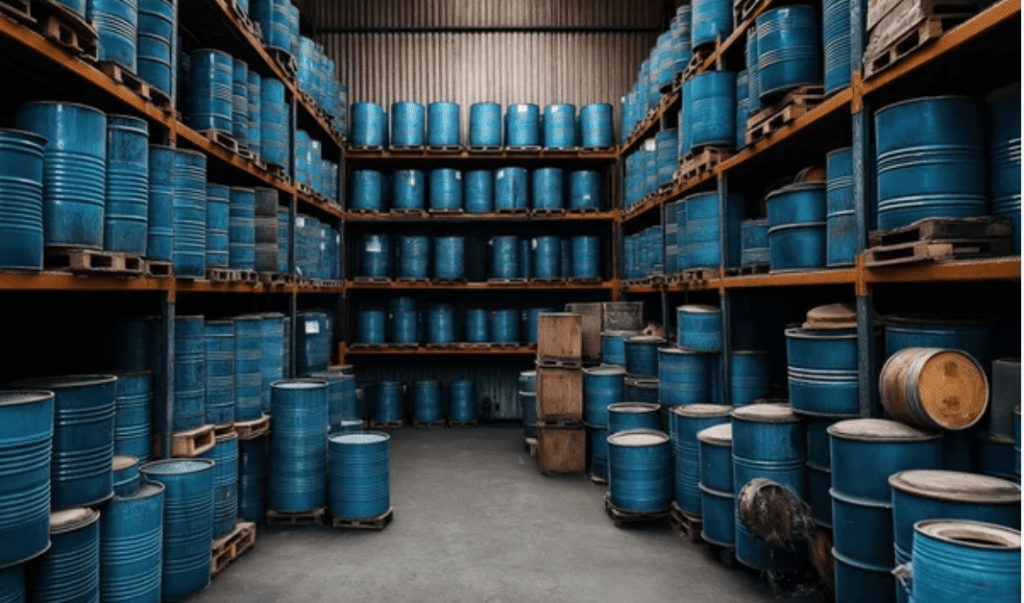Best Practices in Hazardous Waste Management: A Focus on Safe Disposal and Recycling
- Waste Management

Proper hazardous waste management is crucial for environmental protection and regulatory compliance. Mismanagement of hazardous waste can lead to severe ecological damage, legal consequences, and health risks. Businesses must follow best practices to ensure the safe disposal and recycling of hazardous materials.
Elk Environmental specializes in hazardous waste management, helping industries in Pennsylvania maintain compliance with federal and state regulations. By implementing effective waste management strategies, businesses can mitigate environmental risks, ensure regulatory compliance, and promote long-term sustainability.
Understanding Hazardous Waste and Regulatory Requirements
Hazardous waste includes chemicals, industrial by-products, medical waste, and other substances requiring specialized handling. The Environmental Protection Agency (EPA) defines hazardous waste under the Resource Conservation and Recovery Act (RCRA), outlining stringent disposal and management requirements (EPA). Pennsylvania also enforces specific hazardous waste regulations through the Pennsylvania Department of Environmental Protection (PADEP).
Proper classification, labeling, and transportation are essential for compliance. Businesses must identify their waste types accurately to ensure safe handling. Elk Environmental offers Environmental Health and Safety (EHS) consultations to assist clients in maintaining compliance and avoiding legal penalties. For example, businesses must use registered transporters who follow EPA and DOT protocols, including using appropriate containers and manifest systems to track waste from its point of generation to final disposal.
Best Practices in Hazardous Waste Disposal
Safe disposal of hazardous waste requires the use of certified disposal methods and proper TSDF (Treatment, Storage, and Disposal Facilities), including incineration, chemical treatment, and secure landfilling. Incineration helps neutralize harmful chemicals, while chemical treatment involves using neutralizing agents to render waste non-hazardous. Secure landfilling ensures that hazardous materials are properly contained in designated facilities to prevent environmental contamination (EPA Hazardous Waste Disposal).
In addition to choosing the right disposal method, businesses must ensure that hazardous waste is properly packaged and labeled. This minimizes risks during transportation and disposal. Improper disposal can result in legal penalties, environmental harm, and increased costs. Elk Environmental provides compliant disposal solutions to protect businesses from these risks.
Recycling and Resource Recovery in Hazardous Waste Management
Recycling hazardous waste can help reduce environmental impact while lowering disposal costs. Many industrial by-products, including metals, batteries, and solvents, can be processed and reused instead of being discarded. Metal recovery allows industries to extract valuable materials, while battery recycling ensures safe processing of hazardous components. Solvent recovery helps repurpose chemicals for future industrial applications (EPA Hazardous Waste Recycling).
By incorporating recycling into hazardous waste management strategies, businesses can reduce their environmental footprint and improve sustainability. Elk Environmental offers customized recycling solutions to support eco-friendly waste management and help businesses minimize waste-related expenses.
Waste-to-energy (WTE) programs also provide an alternative recycling approach. Certain hazardous wastes, like flammable organic compounds, can be used as fuel in cement kilns and industrial boilers, converting waste into a usable energy source. This reduces landfill reliance while maximizing the value of industrial by-products.
Spill Response and Emergency Management
When hazardous spills occur, a rapid response is essential to prevent environmental contamination and health risks. One recent analysis found that efficient resource allocation and deployment are key factors in minimizing response time, cost, and environmental impacts, ensuring the timely containment and remediation of spills. Effective spill management involves immediate containment of hazardous substances, followed by proper cleanup procedures. Trained professionals equipped with specialized tools ensure that spills are handled safely and efficiently (EPA Spill Prevention).
Failure to respond promptly to hazardous spills can lead to severe environmental consequences, regulatory violations, and costly cleanup efforts. Elk Environmental provides 24/7 emergency response services, ensuring businesses can rely on expert support in critical situations. Their emergency response team helps mitigate risks, minimize downtime, and maintain compliance with environmental regulations.
The Long-Term Impact of Proper Hazardous Waste Management
Implementing sustainable hazardous waste management practices benefits both businesses and the environment. Responsible waste management helps prevent soil, air, and water contamination while ensuring compliance with state and federal regulations. Businesses prioritizing proper waste handling can avoid costly fines and legal issues (EPA Compliance Guide). Demonstrating commitment to environmental responsibility through proper hazardous waste management can also enhance a company’s reputation and build trust with stakeholders.
Additionally, effective hazardous waste management contributes to operational efficiency by streamlining disposal and recycling processes. Partnering with experienced professionals like Elk Environmental allows businesses to develop long-term waste management strategies that align with sustainability goals and regulatory requirements.
Final Thoughts on Best Practices
Effective hazardous waste management is essential for regulatory compliance, environmental protection, and long-term business success. By adopting best practices in disposal, recycling, and spill response, businesses can reduce risks, improve sustainability, and protect public health.Elk Environmental provides expert hazardous waste management solutions tailored to the needs of businesses across the Mid-Atlantic. To ensure safe and compliant waste handling, contact Elk Environmental today.
